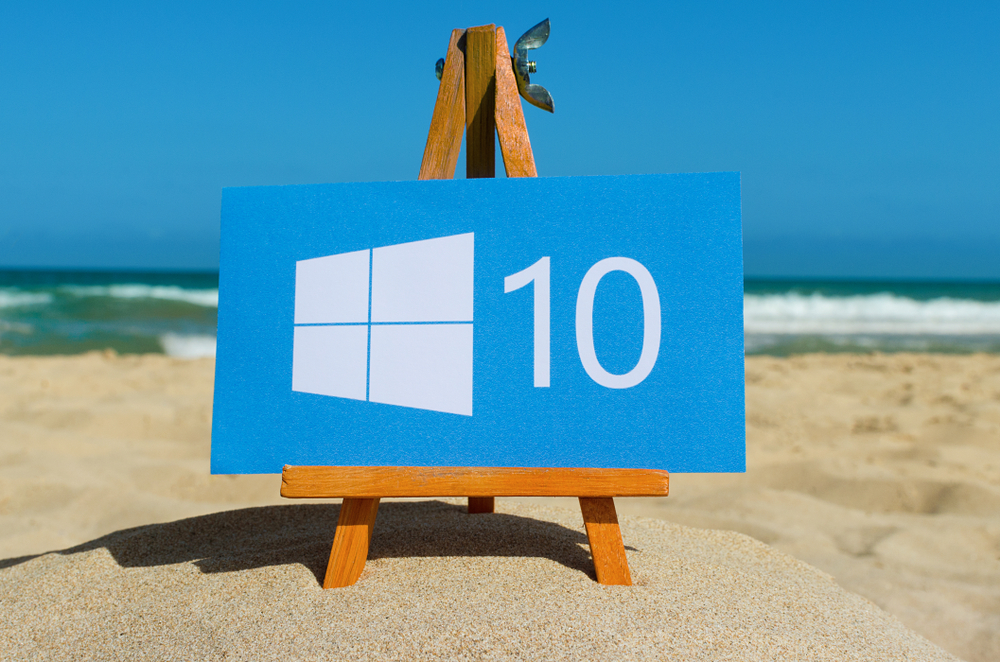Microsoft reveals ‘Windows Sandbox’ mode for Windows 10 Pro and Enterprise users
The VM-like feature will let users run suspicious programmes in total isolation


Microsoft has announced a new security feature that will allow its professional and enterprise users to run suspicious programmes in complete isolation.
The new desktop tool, dubbed Windows Sandbox, will create a virtual machine-like desktop environment that can allow users to run any software, regardless of how harmful it is, without risking lasting impact on their device.
A form of sandbox-style 'private desktop' tool has been in the works for months, with Windows Insiders previously finding evidence for a VM environment in August, at the time dubbed 'InPrivate Desktop'.
"How many times have you downloaded an executable file, but were afraid to run it?" said Microsoft's lead program manager in the Windows Core Kernal Platform Hari Pulapaka, writing in a blog post.
"Have you ever been in a situation which required a clean installation of Windows, but didn't want to set up a virtual machine?
"At Microsoft, we regularly encounter these situations, so we developed Windows Sandbox: an isolated, temporary, desktop environment where you can run untrusted software without the fear of lasting impact to your PC."
Windows Sandbox will be packaged into Windows 10 Pro and Windows 10 Enterprise build 18305 or newer, by default, and runs in complete isolation to a user's machine.
Get the ITPro daily newsletter
Sign up today and you will receive a free copy of our Future Focus 2025 report - the leading guidance on AI, cybersecurity and other IT challenges as per 700+ senior executives
Running the tool will be like opening a clean install of Windows 10 in a windowed application, with everything done within this isolated environment wiped completely upon shutting the app.
Moreover, the tool uses hardware-based virtualisation, relying on Microsoft's hypervisor, which creates Windows virtual machines, to run Windows Sandbox separately from the host.
Users will also need to have AMD64 architecture, virtualisation capabilities enabled in the BIOS, minimum 4GB RAM (8GB recommended) 1GB hard disk space (SSD recommended), and a processor with at least 2 CPU cores (4 with hyperthreading recommended).
"Any software installed in Windows Sandbox stays only in the sandbox and cannot affect your host," Pulapaka continued. "Once Windows Sandbox is closed, all the software with all its files and state are permanently deleted."
Windows Sandbox is currently subject to testing, with users welcome to provide feedback via a specified hub.

Keumars Afifi-Sabet is a writer and editor that specialises in public sector, cyber security, and cloud computing. He first joined ITPro as a staff writer in April 2018 and eventually became its Features Editor. Although a regular contributor to other tech sites in the past, these days you will find Keumars on LiveScience, where he runs its Technology section.
-
 Bigger salaries, more burnout: Is the CISO role in crisis?
Bigger salaries, more burnout: Is the CISO role in crisis?In-depth CISOs are more stressed than ever before – but why is this and what can be done?
By Kate O'Flaherty Published
-
 Cheap cyber crime kits can be bought on the dark web for less than $25
Cheap cyber crime kits can be bought on the dark web for less than $25News Research from NordVPN shows phishing kits are now widely available on the dark web and via messaging apps like Telegram, and are often selling for less than $25.
By Emma Woollacott Published
-
 Tiny11 review: Windows 11 with only 2GB of RAM
Tiny11 review: Windows 11 with only 2GB of RAMReview A version of Windows 11 for older machines that don't meet the full requirements
By Nik Rawlinson Published
-
 Red Hat Enterprise Linux becomes foundational operating system for Cohesity Data Cloud
Red Hat Enterprise Linux becomes foundational operating system for Cohesity Data CloudNews New strategic partnership between Red Hat and Cohesity aims to drive innovation in the data security and management space
By Daniel Todd Published
-
 Ubuntu shifts to four-week update cycle
Ubuntu shifts to four-week update cycleNews Critical fixes will also come every two weeks, mitigating the issues involved with releasing prompt patches on the old three-week cadence
By Richard Speed Published
-
 AlmaLinux follows Oracle in ditching RHEL compatibility
AlmaLinux follows Oracle in ditching RHEL compatibilityNews Application binary compatibility is now the aim with 1:1 now dropped
By Richard Speed Published
-
 How big is the Windows 10 cliff-edge?
How big is the Windows 10 cliff-edge?ITPro Network With some comparing the upcoming Windows 10 end of life to Windows XP, we ask members of the ITPro Network for their insight
By Jane McCallion Published
-
 Everything you need to know about the latest Windows 11 updates - from bug fixes to brand-new features
Everything you need to know about the latest Windows 11 updates - from bug fixes to brand-new featuresNews Two new cumulative updates are on the way and will be installed automatically on Windows 10 and Windows 11 machines
By Rory Bathgate Published
-
 How to download a Windows 11 ISO file and perform a clean install
How to download a Windows 11 ISO file and perform a clean installTutorial Use a Windows 11 ISO to install the operating system afresh
By John Loeppky Published
-
 We could all benefit from better Windows and macOS accessibility features
We could all benefit from better Windows and macOS accessibility featuresOpinion Today’s accessibility features can help you work through a nasty injury, but there’s still plenty of room for improvement
By Barry Collins Published